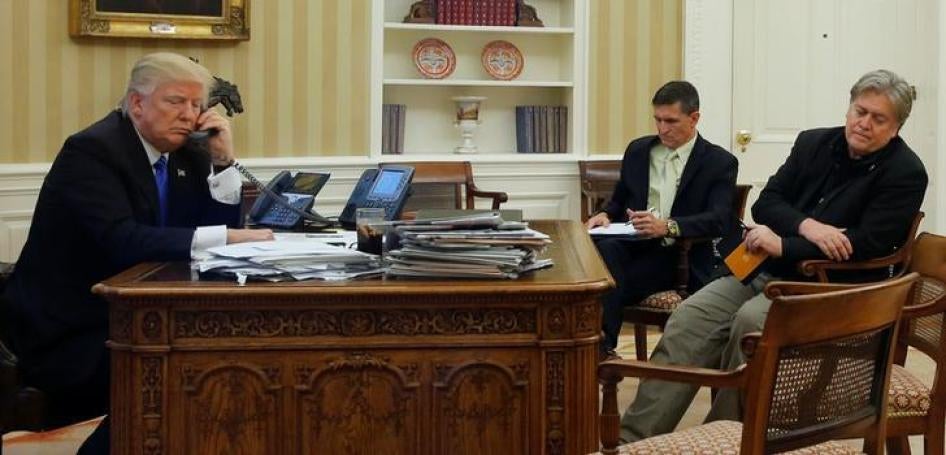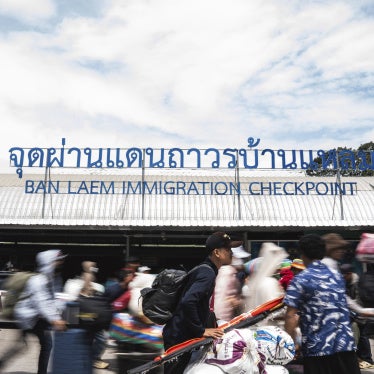Harmful. Discriminatory. Counterproductive. Wrong. Lots of words come to mind when thinking about US President Donald Trump’s recent executive order to ban nationals from seven Muslim countries from entering the US, suspend the resettlement of refugees for months and Syrian refugees indefinitely, and then slash refugee resettlement to the US by more than half.
Yet Australia’s Prime Minister Malcolm Turnbull found no words at all, telling journalists “he would not run a commentary on the domestic policies of other countries.” Turnbull stands in stark contrast to leaders from Canada, France and Germany who have spoken out about the harmful effects of the US presidential order.
At a time when the world is facing an acute humanitarian crisis, Trump’s move seems irresponsible. It will harm people trying to escape war or persecution and abuse, not protect others from it. And, as Republican US senators John McCain and Lindsey Graham said, banning and ostracising people from certain nations will likely have the perverse effect of being a “terrorist recruitment” tool.
Trump’s actions will have serious global ramifications. When human rights values are under attack, it is not the time to turn a blind eye to abusive polices. With Australia’s chequered history of a White Australia immigration policy abandoned long ago, and as a successful multicultural nation, Turnbull could have presented compelling arguments for welcoming those from diverse religious backgrounds. But in failing to denounce the executive order, he fails to serve Australia’s broader interests in a global order responsive to humanitarian concerns. Trump’s action, bolstered by Australia’s silence, may encourage other nations to adopt prejudicial policies with respect to race or religion.
While Turnbull chose silence, other senior Australian officials seemed to applaud Trump’s actions. Foreign Minister Julie Bishop pledged Australia’s support for America’s “strong immigration and border protection policies.” And referencing Australia’s own abusive refugee policies, Treasurer and former immigration minister Scott Morrison said, “The president is implementing what he said he would do … really, the rest of the world is catching up to Australia.”
Turnbull could be reluctant to criticise Trump’s order because of claims of double standards. Australia, after all, sends all asylum seekers arriving by boat offshore to live in uncertainty in Papua New Guinea and Nauru, where they remain vulnerable to abuse. And Australia is desperately clinging to hope that Trump will honour a refugee arrangement with Australia, so that Australia will be able to reserve some of those dwindling US resettlement places for some of the refugees it has kept stranded on Manus Island and Nauru.
But this tail should not wag the dog of Australia’s foreign policy. Of course criticising other governments will open oneself to criticism. But the best way of minimising those attacks is for Australia to end its own abusive policies, not ignoring the abuses and hoping another country will swoop in and sort out the mess one’s made by creating a situation where treating refugees humanely is politically toxic. People who travelled by boat to seek asylum in Australia have already languished in limbo for more than three and a half years on Manus and Nauru.
If Turnbull doesn’t want to let Australia’s foreign policy be continually hijacked by immigration concerns, then the best way is to treat all refugees and asylum seekers humanely and according to law – that means ending offshore processing and not relying on the goodwill of other countries. The sensible and humane solution is to end the suffering on Manus and Nauru immediately by resettling those refugees in Australia.










